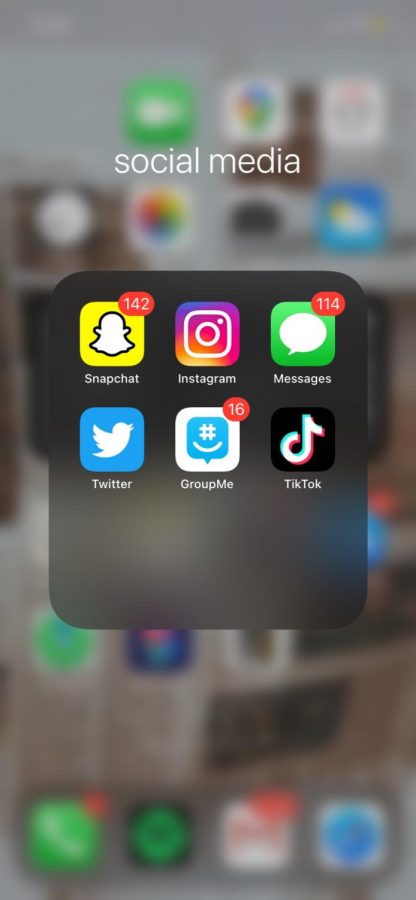Too much information
Is social media leading to oversharing?
TMI. Many people use social media to share intimate details of their lives with their followers, which can result in oversharing. “I think people find it easier to share their ideas and thoughts through a screen,” Kendall Mather, 12.
TMI. Social media presents a quick and easy way to share information with as many people as you wish. With the increasing presence of social media in teenagers’ lives, there is more and more sharing of images, events, and everyday occurrences through the Internet. By tapping through Snapchat stories or scrolling through Instagram, you can easily discover what people are doing, who they are with, and even where they are, which can, at times, pose a safety threat.
Yet social media has other popular uses, too, many of which go deeper than simply a harmless selfie.
Many people use social media to share intimate details of their lives with their followers, which can result in oversharing. Social media often blurs the lines between privacy and publicity, sometimes unveiling too much information. “I think people find it easier to share their ideas and thoughts through a screen,” Kendall Mather, 12.
Oversharing can be completely random, such as posting memes or pictures with friends, but it can also disclose things that others don’t necessarily need to know. Why do we feel so comfortable giving away information about our relationships with others, our opinions on controversial issues, and our personal beliefs through a screen?
In his novel “Social: Why Our Brains are Wired to Connect”, Matthew Lieberman, psychology professor at the University of California, Los Angeles, explains that people enjoy sharing information through social media because they believe that it will appease others or get a positive reaction out of them. Lieberman asserts that “We always seem to be on the lookout for who else will find this helpful, amusing or interesting, and our brain data are showing evidence of that”.
However, social media also presents a method of spreading information without dealing with the discomfort of confrontation in real life. Amongst many teenagers, information can be easily shared with a targeted audience, such as close friends, through the usage of spam accounts or private stories. “I think people overshare because it’s a good place to get a funny story out or [express] your thoughts, and you don’t see how people react unless they message you, which is comforting,” Julie Fort, 11.
Sharing personal experiences through social media can have beneficial effects. It can feel cathartic when an individual posts about topics that may otherwise be taboo or stigmatized by society, such as mental health struggles. It can also cultivate a sense of normalcy for others who face the same challenges or have undergone similar experiences.
All in all, social media is used by different people in different ways. It can be an entertainment platform or a way of contacting friends, but it also has deeper implications. Ultimately, people crave connection with each other, and social media can facilitate these relationships.












